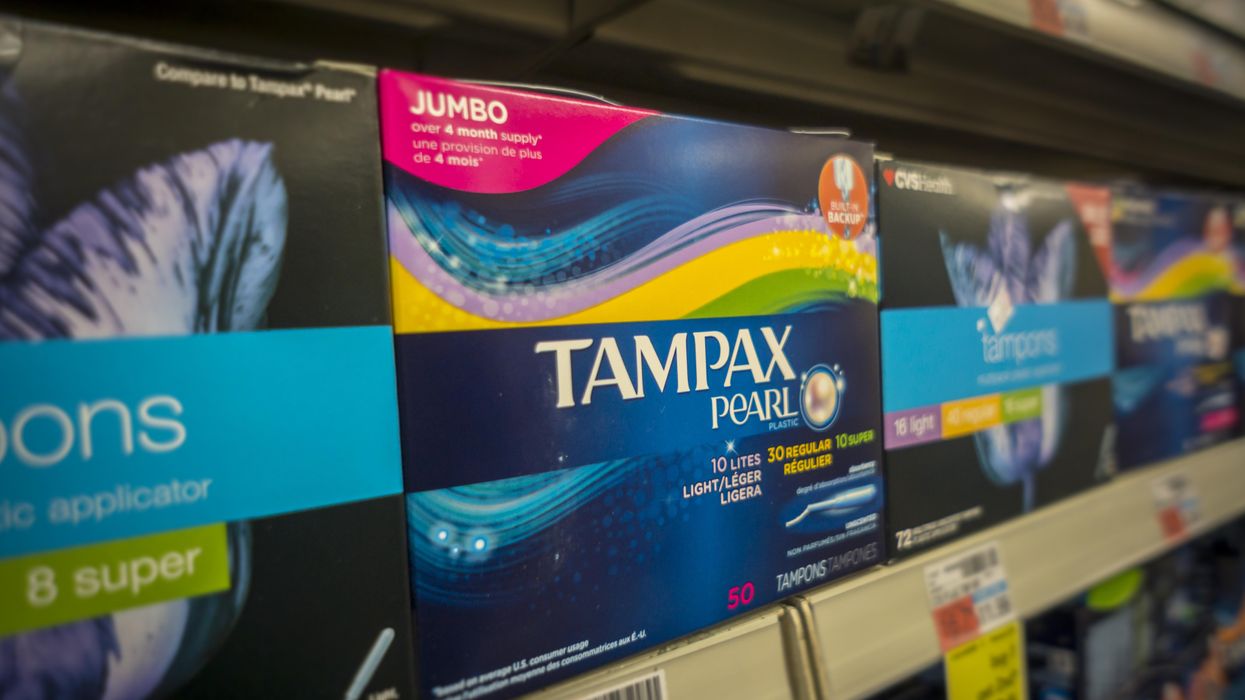
Photo by Richard Levine/Corbis via Getty Images

A famed medical journal has sparked outrage with its insistence on de-sexing women and instead, referring to them as "bodies with vaginas."
Following the outcry, the journal's editor-in-chief issued what was apparently supposed to be an apology, but focused on the transgender community instead.
The Daily Mail on Sunday reported that the Lancet prompted fury with its "dehumanizing" and "sexist" front-page remarks, which described females as "bodies with vaginas" rather than "women" in apparent attempt to appease the transgender lobby.
An early September article, titled "Periods on Display," addressed what the outlet said were "the taboos and history of periods" at the Vagina Museum in London.
The article's writer, according to the outlet, used the word "women" to describe females, but also used the term "bodies with vaginas."
The front page of the Sept. 25 issue said, "Historically, the anatomy and physiology of bodies with vaginas has been neglected."
Our new issue is here! On the cover\u2014'Periods on display' and the cultural movement against menstrual shame and #PeriodPoverty.\n\nPlus, @WHO air quality guidelines, low #BackPain management, community-acquired bacterial #meningitis, and more. Read: https://hubs.li/H0Y33_L0\u00a0pic.twitter.com/DchfiHnYEs— The Lancet (@The Lancet) 1632484905
Some academics, according to the Daily Mail, were unhappy with the article and cover, and said that both were part of a "misguided pursuit of woke points."
Others announced that they would be canceling their subscription to the long-standing medical journal.
The Mail cited Dr. Madeleine Ní Dhálaigh, who said, "Naming women as 'bodies with vaginas' is a new low, all in the misguided pursuit of woke points. You can be inclusive without being insulting and abusive. How dare you dehumanize us with a statement like this?"
Dr. David Curtis, honorary professor of genetics at University College London, added, "Just wrote the Lancet to tell them to take me off their list of statistical reviewers and cancel my subscription and never contact me about anything ever again. Absolutely inexcusable language to refer to women and girls."
Author Susan Dalgety tweeted about the outrage, writing, "Are we just supposed to accept this? Are we extremist for objecting to women and girls being de-humanised. Are we really just 'bodies with vaginas' to medical professionals?"
Are we just supposed to accept this? Are we extremist for objecting to women and girls being de-humanised. Are we really just \u201cbodies with vaginas\u201d to medical professionals?— Susan Dalgety (@Susan Dalgety) 1632507936
British broadcaster and television host Piers Morgan snapped, "'Bodies with vaginas????' What the hell are you talking about? They're called WOMEN."
\u2018Bodies with vaginas\u2019 ????\nWhat the hell are you talking about? They\u2019re called WOMEN.https://twitter.com/TheLancet/status/1441372277786951681\u00a0\u2026— Piers Morgan (@Piers Morgan) 1632514245
Psychology professor Geoffrey Miller also expressed his frustrations on Twitter, and wrote, "Dehumanizing women as nothing more than 'bodies with vaginas' now seems to be the official editorial policy of the world's leading medical journal, @TheLancet."
Dehumanizing women as nothing more than 'bodies with vaginas' now seems to be the official editorial policy of the world's leading medical journal, @TheLancet.https://twitter.com/TheLancet/status/1441372277786951681\u00a0\u2026— Geoffrey Miller (@Geoffrey Miller) 1632526317
Author Michael Shermer chimed in, "'[B]odies with vaginas' If only we had a word for that. @TheLancet: are there also 'bodies without vaginas' & 'bodies with penises?' Call me an old school civil rights champion but doesn't this language shift dehumanize women? Even objectify them as 'bodies' instead of persons?"
Janice Turner of the U.K.'s Times wrote, "BODIESWITHVAGINAS. Does anyone not get it yet? Erasing the word 'woman' turns us into things with holes. Yeah, tell me about that inclusivity & progress."
BODIES WITH VAGINAS. Does anyone not get it yet? Erasing the word \u201cwoman\u201d turns us into things with holes. Yeah, tell me about that inclusivity & progress.https://twitter.com/thelancet/status/1441372277786951681\u00a0\u2026— Janice Turner (@Janice Turner) 1632513852
Journalist Hadley Freeman added, "According to @TheLancet, humans are either men or bodies with vaginas[.]"
According to @TheLancet, humans are either men or bodies with vaginaspic.twitter.com/0cTrj3rlsg— Hadley Freeman (@Hadley Freeman) 1632519798
Lancet editor-in-chief Richard Horton on Monday issued a statement in response to the furious backlash.
"I would like to thank all those who have responded to the words on this week's Lancet cover and understand the strength of feeling it has provoked," Horton wrote. "The Lancet strives for maximum inclusivity of all people in its vision for advancing health.
"In this instance," he added, "we have conveyed the impression that we have dehumanized and marginalized women. Those who read The Lancet regularly will understand that this would never have been our intention."
Horton apologized to those readers who took offense to the cover quote, but tempered the apology by placing emphasis that "transgender health is an important dimension of modern health care."
"I apologize to our readers who were offended by the cover quote and the use of those same words in the review. At the same time, I want to emphasise that transgender health is an important dimension of modern health care, but one that remains neglected," he wrote. "Trans people regularly face stigma, discrimination, exclusion, and poor health, often experiencing difficulties accessing appropriate health care."
He continued, "The exhibition review from which The Lancet cover quote was taken is a compelling call to empower women, together with non-binary, trans, and intersex people who have experienced menstruation, and to address the myths and taboos that surround menstruation. The review, like the exhibition, puts these myths and taboos into historical context. The review calls for greater efforts to overcome the lack of knowledge and stigma too often associated with menstruation. These are serious issues that demand serious actions. We encourage people to read the full review and support a growing movement against menstrual shame and period poverty."